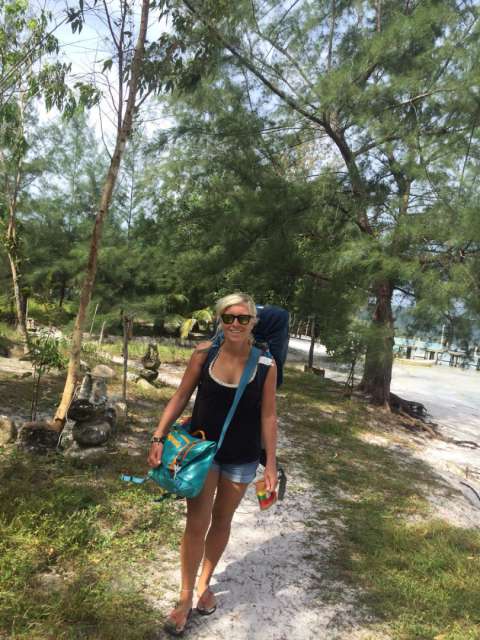Be inspired by this spiritual and ceremonial flair!
Chop etilgan: 09.10.2016
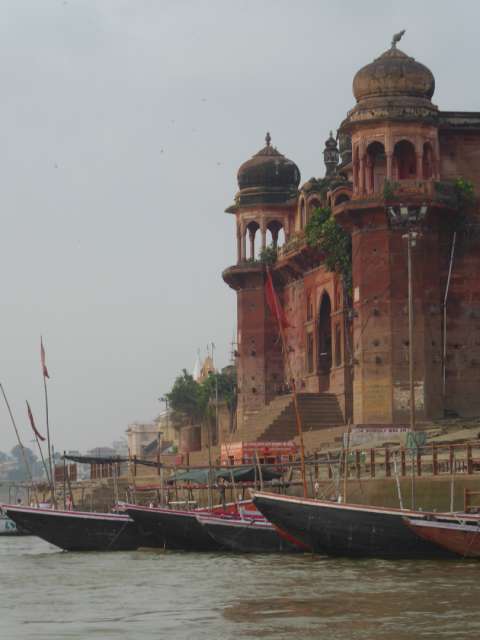
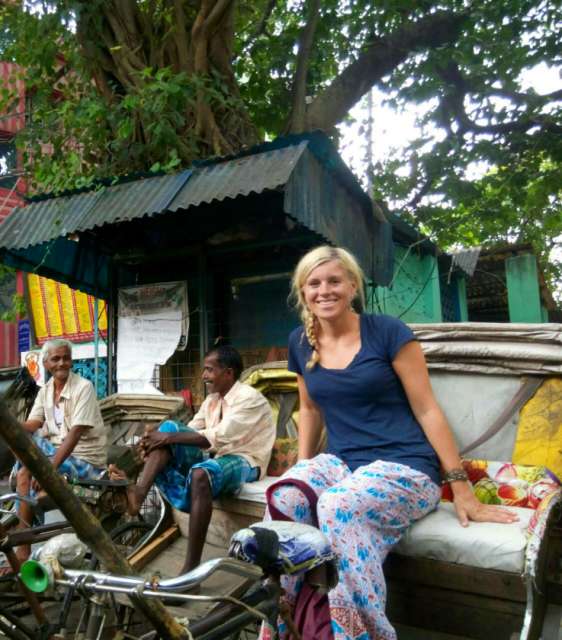
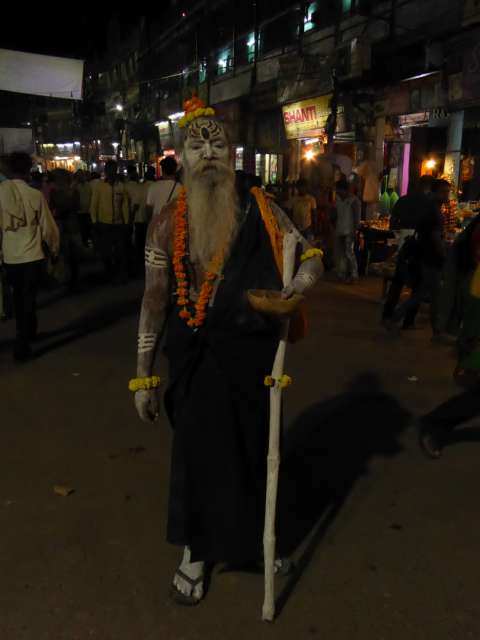
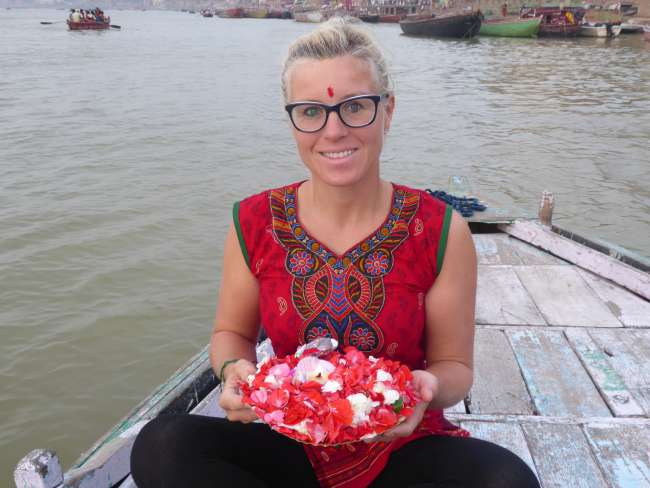
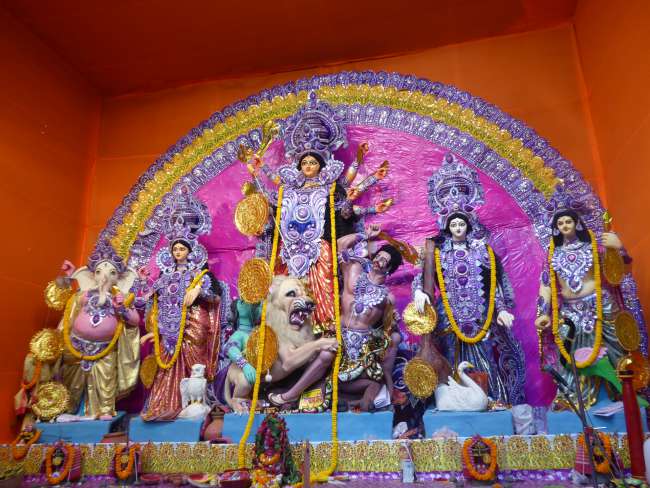
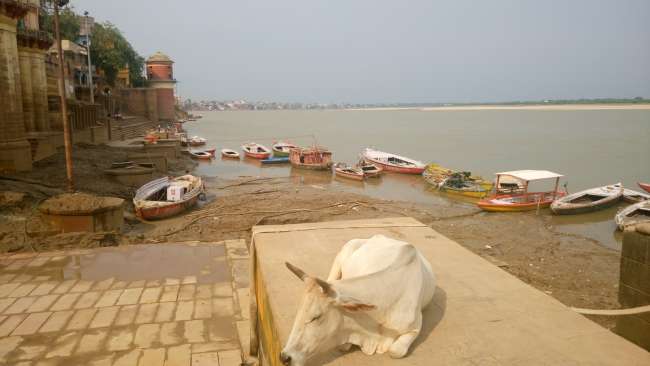
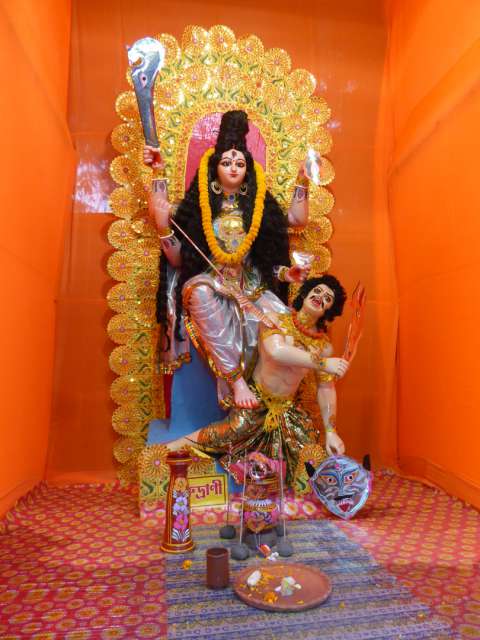
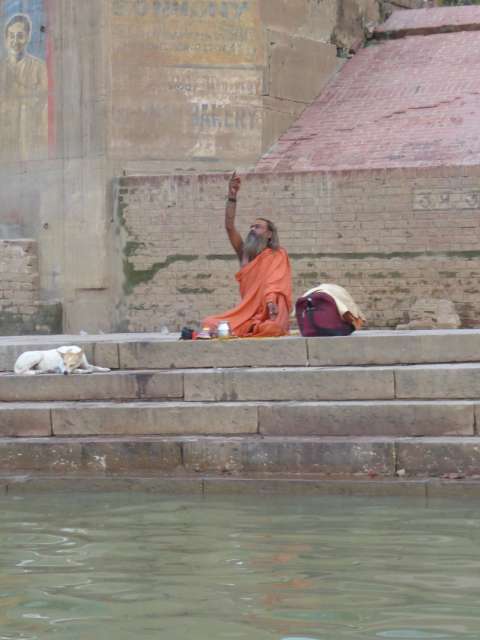
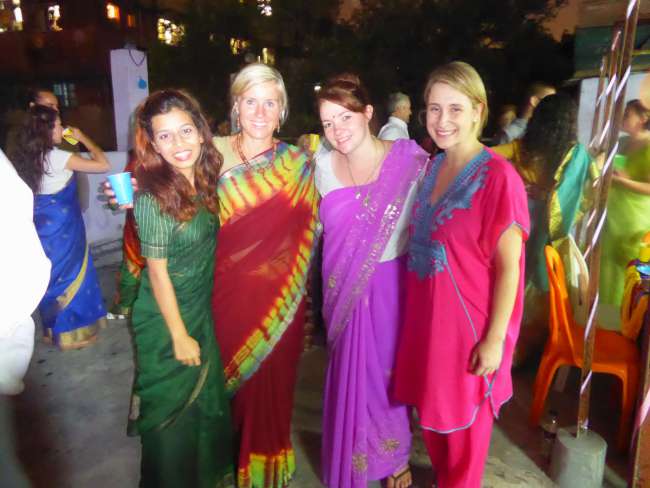
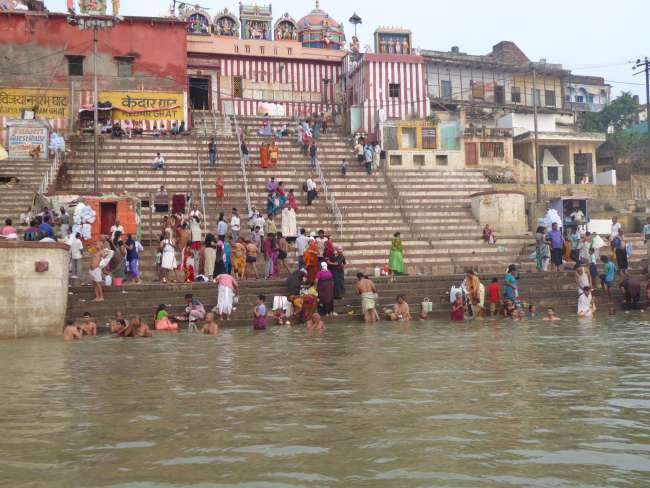
Axborot byulleteniga obuna bo'ling
This sentence on an advertisement poster for the city of Varanasi caught my attention yesterday in the metro in Kolkata. Not only because I have just visited this special place, this sentence fits perfectly with my entry today, but also because there were surely enough 'spiritual and ceremonial moments' in my past days here in India:
Number 1: A Spanish wedding in Kolkata!
Number 2: Happy Puja!
Number 3: Death, cremation, and rebirth in Varanasi!
It is no secret that Spaniards know how to celebrate. But to see Spaniards throw a party on a rooftop in the middle of Kolkata is not something you see every day... and all without Sangria and far away from the beach life at home!! But the occasion was very special: A couple from Bilbao - they have been coming to India as volunteers for years - got married in a church here in Kolkata. For us, of course, it was the perfect opportunity to showcase our saris - by the way, the correct way to wear this traditional Indian clothing is quite a lengthy process, and I must admit, a sari is just as uncomfortable as it looks :-) Since 90% of the volunteers come from Spain, Chile, or other Spanish speaking countries, the atmosphere was very special. With Spanish guitar sounds, we welcomed the bridal couple and ended the evening with Kingfisher beer and pizza.
Durga Puja, one of the biggest festivals for Hindus! And according to the travel guide and the locals here, Kolkata is the best place in India to experience this spectacle up close. The whole city is illuminated with colorful lights, in almost every alley, huge sculptures of the ten-armed and most famous goddess Durga in Hinduism, adorned with gold and grandiosity, are set up - in other words, the whole city is in a Puja frenzy during this multi-day spectacle. I was lucky enough to immerse myself in this special festival with an Indian family. The enthusiasm of the Indians and their reverence for this festival fascinated me. Millions of people walk through the city cheering, celebrating, drumming, or simply marveling, splendid processions take place, and the special atmosphere and excitement can be felt from the largest shopping centers to the smallest tea stalls in every corner of the city. There are so many stories, myths, and rituals surrounding Durga Puja - what I liked the most was the tradition that everyone who stands in front of a Durga sculpture must wear a brand new piece of clothing out of respect and in honor of the goddess. Luckily, last week I received a traditional kurta from Bodhis Mama, which I could present in front of Durga:-). A special highlight for me was visiting a 'home Durga': With my Indian acquaintance, I visited a friend's family who set up their own Durga statue in the courtyard of their house for the first time. This is a very rare occurrence and only a few can fulfill this dream. The acquaintance told us that this was her long-awaited childhood dream - to build her own Durga for the festival. During the festival days, the huge statue, illuminated brightly in a small tent, is accessible to everyone, whether poor or rich, whether Hindu, Muslim, or Catholic, whether Indian or foreigner. We were served wonderful Chai and traditional sweets, the neighboring children drummed, and the head of the household enveloped the room in a mystical cloud of smoke with a type of incense stick, dancing to the music in rhythm. I am very grateful that I had the opportunity to experience Kolkata and its people anew during this impressive festival.
Varanasi - the holy city on the Ganges. It is said that this huge river, which is also the lifeline of India, resembles a dirty, dark gray, and stinky monster, and that the smell of burnt flesh and ash lingers in the air. A Swede told me a funny anecdote about it: He was discussing with an Indian how one can bathe in this water or even drink it. The Indian just laughed and said it is the holiest, healthiest, and purest water in the world. He filled a bottle with Ganges water and joyfully drank from it. Later that same day, he became quite ill and had to vomit. The Swede reacted with schadenfreude because he had already predicted this. The Indian just said, 'no, no, my friend - now you can see, it's the best water in the world - because it helps you to get out all the bad and unhealthy things from your body.'
Varanasi is a myth, and from the moment you step foot in it, you can feel the special atmosphere that reigns here. Because the city is famous for the fact that bodies are cremated on its banks and the ashes are sprinkled into the river. And you can witness all of this up close. It is mystical, scary, eerie, shocking, but at the same time beautiful when you float on a boat over the Ganges at sunrise, watching the rare Ganges dolphins jump and at the same time seeing lifeless bodies wrapped in a shroud adorned with flowers being dipped into the river and then burned directly on the bank. And the most shocking thing for me was that all of this is happening next to children splashing in the water, men bathing, or women washing clothes. The whole city is full of pilgrims or families who forever entrust the ashes of their loved ones to the holy river. Sick and old people come to Varanasi to die here, because the belief is that those who die here break the cycle of death and rebirth forever. During my stay in Varanasi, I often sat on the so-called Ghats - the steps leading directly to the banks of the Ganges - for a long time and observed the colorful hustle and bustle and the many religious rituals at the river. A place that makes you reflect, and nowhere else will you feel the Hindu faith more intensely than here. Despite all its sanctity, I did not try the water of the Ganges :-).
Axborot byulleteniga obuna bo'ling
Javob
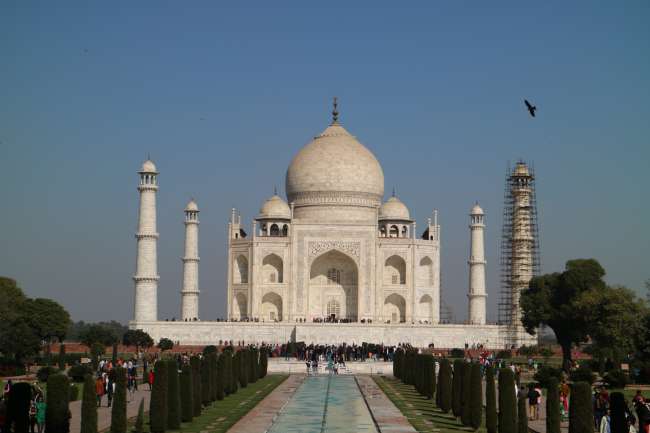
Sayohat hisobotlari Hindiston

